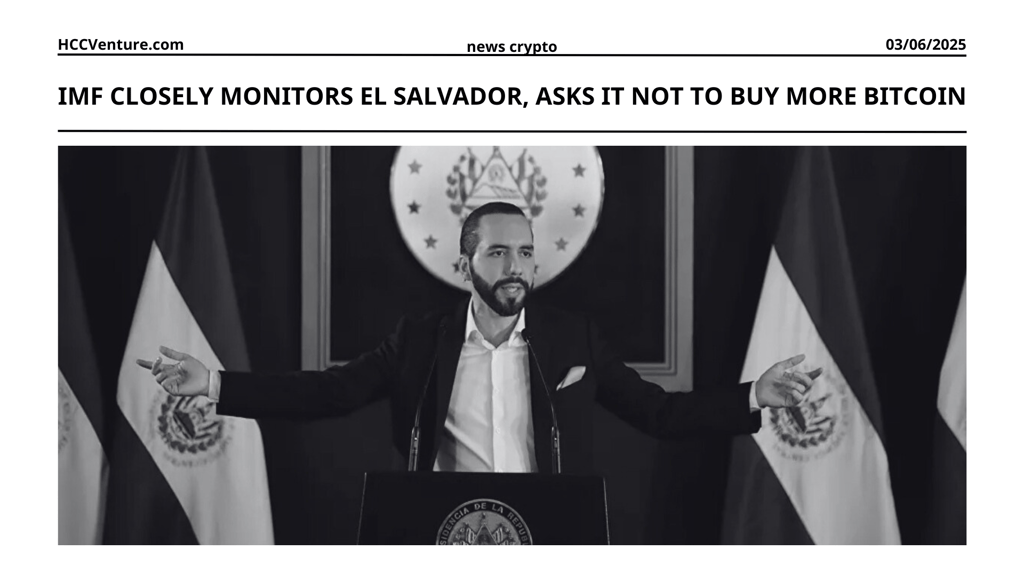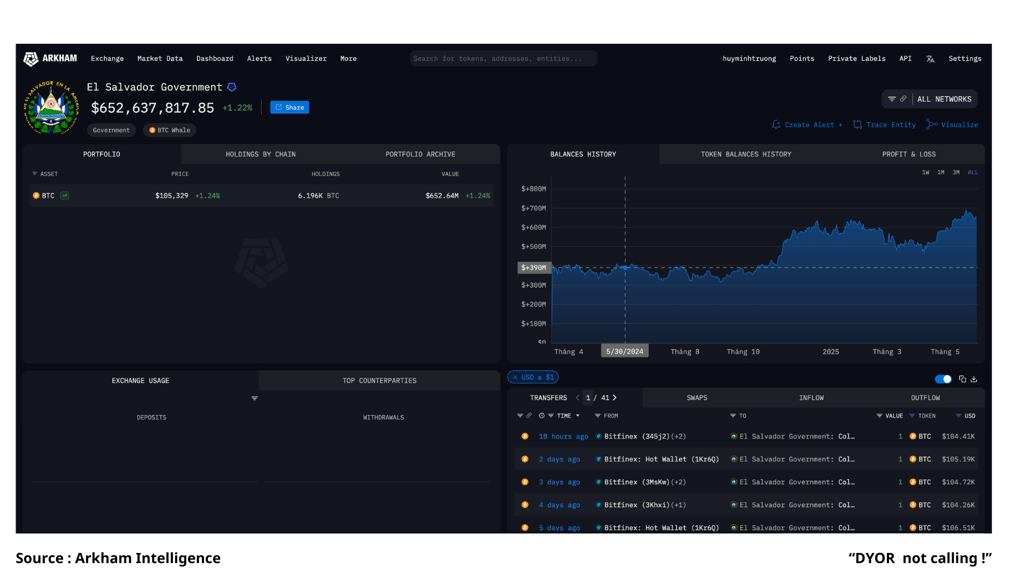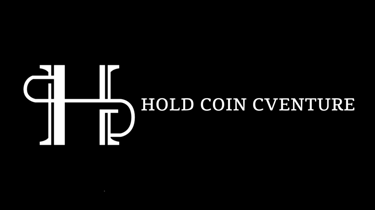IMF Closely Monitors El Salvador, Asks It Not to Buy More Bitcoin
The International Monetary Fund (IMF) has announced the completion of the first review of its Extended Fund Facility (EFF) with El Salvador, emphasizing that it will ensure the country does not purchase additional Bitcoin (BTC).
6/3/20253 min read


Amount of Bitcoin El Salvador holds
As of May 29, 2025, El Salvador owns 6,190.18 BTC, worth approximately $673 million, according to data from the National Bitcoin Office (ONBTC).
This figure is up from 6,101 BTC in early March 2025, after the country purchased an additional 89 BTC between March and May, despite pressure from the IMF.
With Bitcoin hovering around $108,737/BTC at the end of May (according to Arkham Intelligence), this amount of Bitcoin accounts for about 15% of El Salvador's foreign exchange reserves, equivalent to nearly $550 million according to a report from the Council on Foreign Relations (CFR) on May 14, 2025. However, Bitcoin's price has been volatile, peaking at $106,490 in December 2024 before falling more than $30,000 and recovering in April-May 2025, increasing the risk to the country's investment portfolio.


Why El Salvador Isn't Buying More Bitcoin
El Salvador’s decision not to buy more Bitcoin comes under direct pressure from the IMF as part of the $1.4 billion EFF program, approved in February 2025. The IMF has set strict conditions to minimize financial risks associated with Bitcoin, including:
The IMF requires El Salvador to maintain the total amount of Bitcoin in government-owned wallets as part of the performance criteria of the EFF program. The IMF’s May 27, 2025 report stressed: “Efforts will continue to ensure that the total amount of Bitcoin in all government wallets remains unchanged.” This is to limit the risk of price volatility, which has put pressure on El Salvador’s debt crisis in 2022, when Bitcoin prices fell sharply and increased the yield spread of government bonds compared to US Treasury bonds.
The IMF is concerned about Bitcoin's volatility and the risk of money laundering, especially as El Salvador faces a high public debt-to-GDP ratio that is expected to reach 85% by 2024. Continued accumulation of Bitcoin could worsen the financial situation, making it difficult to access additional loans from the World Bank and the Inter-American Development Bank, which could provide an additional $2 billion in funding.
In agreement with the IMF, El Salvador amended its Bitcoin Law in January 2025, making Bitcoin acceptance voluntary for the private sector and no longer mandatory as legal tender. The government also pledged to stop using the Chivo wallet by the end of July 2025 and to stop accepting tax payments in Bitcoin, switching entirely to USD.
The IMF asked El Salvador to provide detailed information on Bitcoin transactions, including cold and hot wallet addresses, names of individuals involved, and strict regulations on buying, holding, or liquidating Bitcoin. Specific timelines have been set, with the next review due in July 2025 and a comprehensive regulatory framework in place by December 2025.
El Salvador’s pause on Bitcoin purchases does not mean the country has completely abandoned its cryptocurrency strategy. President Nayib Bukele, a staunch Bitcoin advocate, stated on social media in March 2025 that Bitcoin accumulation “will not stop.” However, pressure from the IMF has forced the government to reconsider its strategy. While it will not purchase more, El Salvador will maintain its current Bitcoin holdings as part of its Strategic Bitcoin Reserve, with the long-term goal of capitalizing on the asset’s potential appreciation.
Evaluation and Conclusion
The IMF’s completion of its first review of the EFF program and its request for El Salvador to stop buying more Bitcoin marks a turning point in the country’s financial strategy. With 6,190.18 BTC in hand, worth about $673 million, El Salvador is facing the challenge of balancing its cryptocurrency ambitions with the IMF’s demands for financial stability.
While Bukele has paused his Bitcoin purchases, the move does not mean he has given up on his vision. However, with the IMF’s tight monitoring timelines and potential financial risks, El Salvador needs a more flexible strategy to ensure long-term economic stability.
Once again we give our opinion on potential projects in the crypto market. This is not investment advice, consider your portfolio. Disclaimer: The views expressed in this article are solely those of the author and do not represent the platform in any way. This article is not intended to be a guide to making investment decisions.
Compiled and analyzed by HCCVenture
Join our telegram community: HCCVenture
Explore HCCVenture group
HCCVenture © 2023. All rights reserved.

Connect with us
Popular content
Contact to us
E-mail : sp_contact@hccventure.com
Register : https://linktr.ee/holdcoincventure
Disclaimer: The information on this website is for informational purposes only and should not be considered investment advice. We are not responsible for any risks or losses arising from investment decisions based on the content here.


TERMS AND CONDITIONS • CUSTOMER PROTECTION POLICY
ANALYTICAL AND NEWS CONTENT IS COMPILED AND PROVIDED BY EXPERTS IN THE FIELD OF DIGITAL FINANCE AND BLOCKCHAIN BELONGING TO HCCVENTURE ORGANIZATION, INCLUDING OWNERSHIP OF THE CONTENT.
RESPONSIBLE FOR MANAGING ALL CONTENT AND ANALYSIS: HCCVENTURE FOUNDER - TRUONG MINH HUY
Read warnings about scams and phishing emails — REPORT A PROBLEM WITH OUR SITE.
